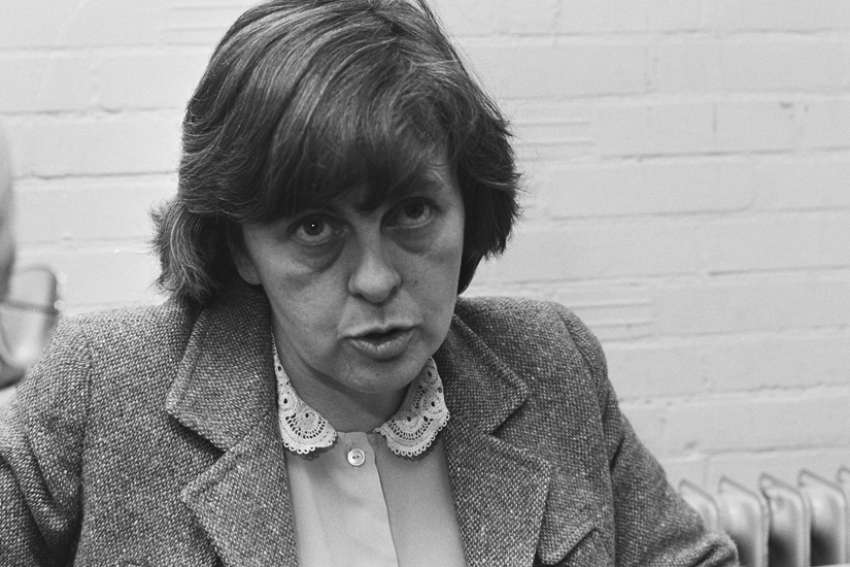It came when I stumbled recently into a YouTube ringside seat to watch Buckley’s Firing Line program from March 1972. The featured guest was Ms. Devlin herself, then a 24-year-old political firebrand. At the time, she had already been for three years an MP from Northern Ireland.
I sat transfixed watching the replay from almost 50 years ago as the youngest woman ever elected to the British Parliament figuratively thumped the bee-jay-zuz out of the founder of National Review magazine. I stress the word “figuratively” in her manhandling of the father of (pardon my oxymoron) modern conservatism. Devlin, after all, was already (in)famous for literally clocking Conservative Home Secretary Reginald Maudling in the Commons after he excused British soldiers for gunning down 14 protesteors on Bloody Sunday 1972.
I grew up a devotee of Firing Line and of William F. When I was seated at table with him in the early 2000s during a lunch hosted by Conrad Black, I was only slightly less in awe than when I was part of an audience with Pope John Paul II in the Vatican apartments. But watching Devlin as she danced rings around the éminence grise of the American right was epiphany indistinguishable from ecstasy.
It wasn’t just Buckley’s obtuseness, during the worst years of the Troubles, about Irish history or Northern Irish politics. It was Devlin’s extraordinary command of both, and her linguistic facility in laying the facts out as debating points. The few times Buckley came close to laying a glove on her was when she lapsed into some university common room pseudo-Marxist jargon. When she stuck to what the Irish nuns taught her, she was on fire.
What the sisters taught her was courage as a young woman to say to William F. Buckley Jr. “your question jumps a lot of logic” and “well, I’m going to explain that to you if you’d just stop talking long enough to let me.”
The Irish nuns, and the whole tradition of Catholic social teaching, evidently also taught her to tell Buckley to his East Coast plutocratic face: “The problem of the working class ultimately is only solved by the working class asserting its right as the democratic majority, that is as the people who do all the work.”
The spirit of her words was redolent in, as The Catholic Register’s Michael Swan reported May 1, a call from Quebec’s Catholic bishops for the emergence of a post-pandemic economic order that recognizes and rewards those “who do all the work” at the bottom of the wage scale.
“Women and young people have been especially hard hit,” Swan quoted the bishops from “Towards a Just Recovery: Paying Attention to the Lives of Workers.”
He noted their emphasis that, “The first priority of any recovery plan must certainly be to foster a return to work with appropriate working conditions in those sectors that were especially affected. This must include an increase to the minimum wage and attention to the urgent need for paid family and medical leaves.”
Whether those prescriptions are necessities or nostrums, their essence is how appallingly neglectful society has become toward the very working-class people it designated as “essential” during the COVID crisis. Indeed, that may be, in a North American context at least, the priority lesson from the past 14 months.
Or as the Quebec bishops write: “A just recovery must start from a real recognition of the dignity and the work of those — mainly women — upon whom our public services rely at all levels.”
Those could be words from Bernadette Devlin’s mouth to William F. Buckley’s ear 49 years ago. Their shared Catholic genealogy is clear in their resemblance to St. John Paul II’s words in Laborem Exercens, to Pope Leo XIII’s in Rerum Novarum, and to the whole message of the Gospel itself.
(Stockland is publisher of Convivium.ca and a senior fellow with Cardus.)


